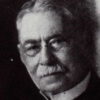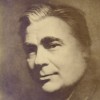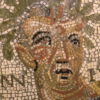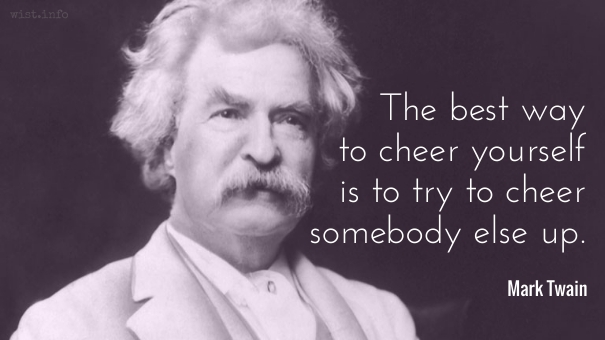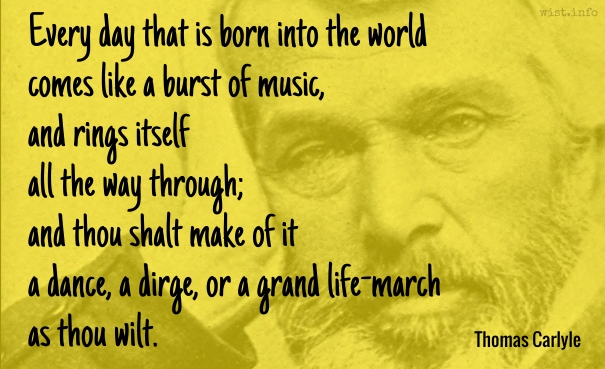Youth is not a time of life; it is a state of mind; it is not a matter of rosy cheeks, red lips and supple knees; it is a matter of the will, a quality of the imagination, a vigor of the emotions; it is the freshness of the deep springs of life.
Youth means a temperamental predominance of courage over timidity of the appetite, for adventure over the love of ease. This often exists in a man of sixty more than a boy of twenty. Nobody grows old merely by a number of years. We grow old by deserting our ideals.
Years may wrinkle the skin, but to give up enthusiasm wrinkles the soul. Worry, fear, self-distrust bows the heart and turns the spirit back to dust.
Whether sixty or sixteen, there is in every human being’s heart the lure of wonder, the unfailing child-like appetite of what’s next, and the joy of the game of living.
When the aerials are down, and your spirit is covered with snows of cynicism and the ice of pessimism, then you are grown old, even at twenty, but as long as your aerials are up, to catch the waves of optimism, there is hope you may die young at eighty.
Samuel Ullman (1840-1924) German-American businessman, poet, humanitarian, religious leader
“Youth” (1918)
(Source)
This poem was a favorite of Douglas MacArthur, who had a copy hung in his office in Tokyo, and was responsible for much of the author's subsequent fame in Japan.
Quotations about:
attitude
Note not all quotations have been tagged, so Search may find additional quotes on this topic.
It’s no use crying over spilt evils. It’s better to mop them up laughing.
Eleanor Farjeon (1881-1965) English author
Gypsy and Ginger, “Gypsy and Ginger Take Things Seriously” [Gypsy] (1920)
(Source)
There are no exact directions. There are probably no directions at all. The only things that I am able to recommend at this moment are: a sense of humour; an ability to see the ridiculous and the absurd dimensions of things; an ability to laugh about others as well as about ourselves; a sense of irony; and, of everything that invites parody in this world. In other words: rising above things, or looking at them from a distance; sensibility to the hidden presence of all the more dangerous types of conceit in others, as well as in ourselves; good cheer; an unostentatious certainty of the meaning of things; gratitude for the gift of life and courage to assume responsibility for it; and, a vigilant mind.
Václav Havel (1936-2011) Czech playwright, essayist, dissident, politician
Speech, accepting the “Open Society” Prize, Central European University (24 Jun 1999)
(Source)
but whotthehell archy whotthehell
jamais triste archy jamais triste
that is my motto.Don Marquis (1878-1937) American journalist and humorist
archy and mehitabel, “mehitabel sees paris” (1927)
(Source)
"Jamais triste" means "never sad" in French.
He who has conquered is not conqueror
Unless the conquered one confesses it.[Qui vincit non est victor nisi victus fatetur.]
If life becomes hard to bear we think of a change in our circumstances. But the most important and effective change, a change in our own attitude, hardly even occurs to us, and the resolution to take such a step is very difficult for us.
Ludwig Wittgenstein (1889-1951) Austrian-English philosopher
Culture and Value, 1946 (1977) [tr. Winch (1980)]
(Source)
If you can’t change your fate, change your attitude.
The essence of spiritual practice is your attitude toward others.
The Dalai Lama (b. 1935) Tibetan Buddhist spiritual leader [The 14th Dalai Lama; a/k/a Lhama Thondup / Lhama Dhondrub; b. Tenzin Gyatso]
“The Dalai Lama in Depth,” Interview with Catherine Ingram, Yoga Journal (Jan/Feb 1990)
(Source)
Reason allows us to determine when our wishes are in irrevocable conflict with reality, and then bids us to submit ourselves willingly, rather than angrily or bitterly, to necessities. We may be powerless to alter certain events, but we remain free to choose our attitude towards them, and it is in our spontaneous acceptance of necessity that we find our distinctive freedom.
Alain de Botton (b. 1969) Swiss-British author
The Consolations of Philosophy, ch. 3 “Consolation for Frustration”(2000)
(Source)
The best way to cheer yourself is to try to cheer somebody else up.
Mark Twain (1835-1910) American writer [pseud. of Samuel Clemens]
Note (1896-11-26), Mark Twain’s Notebook, ch. 27 “England” (1935) [ed. Albert Bigelow Paine]
(Source)
Written while in Guilford, England, shortly after the death of his daughter Susy in America.
Often given as "The best way to cheer yourself up is to try to cheer somebody else up." More discussion here.
I live my life in celebration and in praise of the life I’m living. What you focus on expands. The more you praise and celebrate your life, the more there is in life to celebrate. The more you complain, the more you find fault, the more misery and fault you will have to find.
Oprah Winfrey (b. 1954) American TV personality, actress
“Words of the Week,” Jet (27 Oct 1986)
(Source)
Every day that is born into the world comes like a burst of music, and rings itself all the way through; and thou shalt make of it a dance, a dirge, or a grand life-march as thou wilt.
Thomas Carlyle (1795-1881) Scottish essayist and historian
(Attributed)
Variant: "Every day that is born into the world comes like a burst of music and rings itself the way through, and you make of it a dance, a dirge, or a life-march, as thou wilt."
The earliest reference I can find to this is its quotation in (or perhaps adjacent to) Kate W. Hamilton, "Ariel Seaton's Rainy Day," The Ladies' Repository (Jan 1868).
As I have often told you, politeness and good beeding are absolutely necessary to adorn any, or all other good qualities or talents. Without them, no knowledge, no perfection whatever, is seen in its best light. The scholar, without good breeding, is a pedant; the philosopher, a cynic; the soldier, a brute; and every man disagreeable.
Lord Chesterfield (1694-1773) English statesman, wit [Philip Dormer Stanhope]
Letter to his son, #128 (9 Oct 1747)
(Source)
I don’t want to be bitter about life — about love and friendship and all the human emotional entanglements. I’ve had more than my share of human disappointments, deprivations, disillusionment. I want to love people and life above all; I want to be able to say always, “if you feel bitter or disillusioned, there is something wrong with yourself, not with people, not with life.”
Bad temper is its own scourge. Few things are bitterer than to feel bitter. A man’s venom poisons himself more than his victim.
Charles Buxton (1823-1871) English brewer, philanthropist, writer, politician
Notes of Thought #560 (1873)
(Source)
Great as our differences are, all of us — professors, politicians, preachers — would no doubt find that we had much in common after all if it were possible to meet in the flesh some distinguished representatives from a former age.
One ship drives east and another drives west,
With the self-same winds that blow,
‘Tis the set of the sails
And not the gales
That tell them way to go.
Like the winds of the sea are the winds of fate,
As we journey along through life,
‘Tis the set of the soul,
That determines the goal,
And not the calm or the strife.Ella Wheeler Wilcox (1850-1919) American author and poet.
“The Winds of Fate” (1913), Poems of Optimism (1915)
(Source)
Sometimes called "'Tis the Set of the Sail."
There is a longer variant of the poem, sometimes called "One Ship Sails East," that includes two stanzas in front, and has slightly different words in the analogous stanzas. I have not found a primary source for this version:
But to every mind there openeth,
A way, and way, and away,
A high soul climbs the highway,
And the low soul gropes the low,
And in between on the misty flats,
The rest drift to and fro.
But to every man there openeth,
A high way and a low,
And every mind decideth,
The way his soul shall go.
One ship sails East,
And another West,
By the self-same winds that blow,
'Tis the set of the sails
And not the gales,
That tells the way we go.
Like the winds of the sea
Are the waves of time,
As we journey along through life,
'Tis the set of the soul,
That determines the goal,
And not the calm or the strife.
The best thing to give to your enemy is forgiveness; to an opponent, tolerance; to a friend, your heart; to your child, a good example; to a father, deference; to your mother, conduct that will make her proud of you; to yourself, respect; to all men, charity.
Clara Lucas Balfour (1808-1878) English novelist, lecturer, temperance campaigner
Sunbeams for All Seasons: Counsels, Cautions, and Precepts (1861 ed.)
Brace thee, my friend, when times are hard, to show
A mind unmoved; nor less, when fair thy state,
A sober joy. For Death doth wait
As surely, whether woe
Dogs all thy days, or fortune bids thee bask
On peaceful lawn reclined while life goes well,
And quaff thy wine, from inner cell
Drawn at Falernian cask.[Aequam memento rebus in arduis
servare mentem, non secus in bonis
ab insolenti temperatam
laetitia, moriture Delli,
seu maestus omni tempore vixeris
seu te in remoto gramine per dies
festos reclinatum bearis
interiore nota Falerni.]Horace (65-8 BC) Roman poet and satirist [Quintus Horacius Flaccus]
Odes [Carmina], Book 2, # 3, l. 1ff (2.3.1-8) (23 BC) [tr. Marshall (1908)]
(Source)
Generally believed to be addressed to Quintus Dellius, but some scholars point to an older manuscript that refers to "Gelli" rather than "Delli," which then fits into various theories about themes in in Horace's works.
(Source (Latin)). Alternate translations:
Keep still an equal minde, not sunk
With stormes of adverse chance, not drunk
With sweet Prosperitie,
O Dellius that must die,
Whether thou live still melancholy,
Or stretcht in a retired valley;
Make all thy howers merry
With bowls of choicest Sherrie.
[tr. Sir R. Fanshaw; ed. Brome (1666)]
An even mind in every State,
Amidst the Frowns and Smiles of Fate,
Dear mortal Delius always show;
Let not too much of cloudy Fear,
Nor too intemperate joys appear
Or to contract, or to extend thy Brow:
Whether thy dull unhappy Years
Run slowly clog'd with Hopes and Fears,
And sit too heavy on thy Soul;
Or whether crown'd on Beds of Flowers
Mirth softly drives thy easy hours
And cheers thy Spirits with the choicest Bowl.
[tr. Creech (1684)]
An equal mind, when storms o'ercloud,
Maintain, nor 'neath a brighter sky
Let pleasure make your heart too proud,
O Dellius, Dellius! sure to die,
Whether in gloom you spend each year,
Or through long holydays at ease
In grassy nook your spirit cheer
With old Falernian vintages.
[tr. Conington (1872)]
O Dellius, since thou art born to die, be mindful to preserve a temper of mind even in times of difficulty, as well an restrained from insolent exultation in prosperity: whether thou shalt lead a life of continual sadness, or through happy days regale thyself with Falernian wine of the oldest date, at ease reclined in some grassy retreat.
[tr. Smart/Buckley (1853)]
Let not the frowns of fate
Disquiet thee, my friend,
Nor, when she smiles on thee, do thou, elate
With vaunting thoughts, ascend
Beyond the limits of becoming mirth,
For, Dellius, thou must die, become a clod of earth!
Whether thy days go down
In gloom, and dull regrets.
Or, shunning life's vain struggle for renown,
Its fever and its frets,
Stretch'd on the grass, with old Falernian wine.
Thou giv'st the thoughtless hours a rapture all divine.
[tr. Martin (1864)]
With a mind undisturbed take life's good and life's evil,
Temper grief from despair, temper joy from vainglory;
For, through each mortal change, equal mind,
O my Dellius, befits mortal-born,
Whether all that is left thee of life be but trouble,
Or, reclined at thine ease amid grassy recesses,
Thy Falernian, the choicest, records
How serenely the holidays glide.
[tr. Bulwer-Lytton (1870)]
An even mind in days of care,
And in thy days of joy to bear
A chastened mood, remember: why?
'Tis, Dellius, that thou hast to die.
Alike, if all thy life be sad,
Or festal season find thee glad,
On the lone turf at ease recline,
And quaff thy best Falernian wine.
[tr. Gladstone (1894)]
See thou preserve a true equanimity
In seasons adverse, and in prosperity
A mind restrain'd from overweening
Joy, for, my Dellius, thou art mortal!
Whether in sorrow all thy life long thou live,
Or in a distant glade on some holiday,
Thou lie at ease, the summer day long,
Quaffing the specially-mark'd Falernian.
[tr. Phelps (1897)]
An even mind remember to preserve
In arduous times, conversely, in the good
One tinctured with no overweening joy.
For you will die (Gillo)
Whether you live at all times sad,
Or whether on distant lawn reclined
Through days of feast you are made glorious
From inmost cellar of Falernian.
[tr. Garnsey (1907)]
Remember, when life’s path is steep, to keep an even mind, and likewise, in prosperity, a spirit restrained from over-weening joy, Dellius, seeing thou art doomed to die, whether thou live always sad, or reclining in grassy nook take delight on holidays in some choice vintage of Falernian wine.
[tr. Bennett (Loeb) (1912)]
Remember, Dellius, doomed to die
Some day, to keep a level mind
When times are hard, nor pridefully
Exalt your horn when Fate seems kind --
Aye, doomed to die, whether each dawn
Renews your griefs, or days of rest
Comfort you, couched on some far lawn,
With old Falernian of the best.
[tr. Mills (1924)]
Maintain an unmoved poise in adversity;
Likewise in luck one free of extravagant
Joy. Bear in mind my admonition,
Dellius. Whether you pass a lifetime
Prostrate with gloom, or whether you celebrate
Feast-days with choice old brands of Falernian,
Stretched out in some green, unfrequented
Meadow, remember your death is certain.
[tr. Michie (1963)]
Remember, Dellius: keep yourself in
Balance when it’s hard, keep yourself in
Balance when all of it comes your way,
All of us destined to die
Whether we live forever sad
Or always lying in some grassy spot,
Celebrating life away
With a jug of choice Falernian.
[tr. Raffel (1983)]
When things are bad, be steady in your mind;
Dellius, don't be
Too unrestrainedly joyful in good fortune.
You are going to die.
It doesn't matter at all whether you spend
Your days and nights in sorrow,
Or, on the other hand, in holiday pleasure,
Drinking Falernian wine
Of an excellent vintage year, on the river bank.
[tr. Ferry (1997)]
Remember, entrapped in life’s bitter maze,
to keep an even mind. Even in prosperity
do not give way to unbridled joy.
Remember, you must die, O Dellius,
Whether you live always embrued in melancholy
or languidly laying in a far-off meadow
on festive days, you take delight in
some choice vintage of Falernian wine.
[tr. Alexander (1999)]
When things are troublesome, always remember,
keep an even mind, and in prosperity
be careful of too much happiness:
since my Dellius, you’re destined to die,
whether you live a life that’s always sad,
or reclining, privately, on distant lawns,
in one long holiday, take delight
in drinking your vintage Falernian.
[tr. Kline (2015)]
And this made me remember that common saying everyone in China was raised with: “If you can’t change your fate, change your attitude.”
Amy Tan (b. 1952) American novelist
The Kitchen God’s Wife, ch. 17 (1991)
(Source)
Usually quoted without the attribution to a common saying.
Life does not cease to be funny when people die any more than it ceases to be serious when people laugh.
George Bernard Shaw (1856-1950) British playwright and critic
The Doctor’s Dilemma, Act 5 [Ridgeon] (1906)
(Source)
Life is 10 percent what you make it and 90 percent how you take it.
Irving Berlin (1888-1989) American songwriter [b. Isidore Beilin]
(Attributed)
(Source)
Attributed as a comment made by Berlin during a performance of the show This is the Army, Mr. Jones at the Palladium in London in 1943.
Also sometimes attributed to Benjamin Franklin.
Every body and every thing conspire to make me as contented as possible in it; yet I have seen too much of the vanity of human affairs, to expect felicity from the splendid scenes of public life. I am still determined to be cheerful and to be happy, in whatever situation I may be; for I have also learnt, from experience, that the greater part of our happiness or misery depends upon our dispositions, and not upon our circumstances. We carry the seeds of the one or the other about with us, in our minds, wheresoever we go.
Martha Washington (1731-1802) American socialite, wife of George Washington, First Lady (1789-1797)
Letter to Mercy Otis Warren (1789-12-26)
(Source)
The meaning of things lies not in the things themselves but in our attitude towards them.
Antoine de Saint-Exupéry (1900-1944) French writer, aviator
Citadelle [The Wisdom of the Sands], ch. 5 (1948) [tr. Gilbert (1950)]
(Source)
Pride goeth before destruction, and an haughty spirit before a fall.
The Bible (The Old Testament) (14th - 2nd C BC) Judeo-Christian sacred scripture [Tanakh, Hebrew Bible], incl. the Apocrypha (Deuterocanonicals)
Proverbs 16:18 [KJV (1611)]
(Source)
Source of the common elided version, "Pride goeth before a fall."
Alternate translations:
Pride goes before destruction, a haughty spirit before a fall.
[JB (1966), NJB (1985)]
Pride leads to destruction, and arrogance to downfall.
[GNT (1976)]
Pride comes before disaster,
and arrogance before a fall.
[CEB (2011)]
Pride goes before destruction
and a haughty spirit before a fall.
[NRSV (2021 ed.)]
Pride goes before ruin,
Arrogance, before failure.
[RJPS (2023 ed.)]
We who lived in concentration camps can remember the men who walked through the huts comforting others, giving away their last piece of bread. They may have been few in number, but they offer sufficient proof that everything can be taken away from a man but one thing: the last of the human freedoms — to choose one’s attitude in any given set of circumstances, to choose one’s own way.
Viktor Frankl (1905-1997) German-American psychologist, writer
Man’s Search for Meaning, Part 1 (1959)
(Source)

